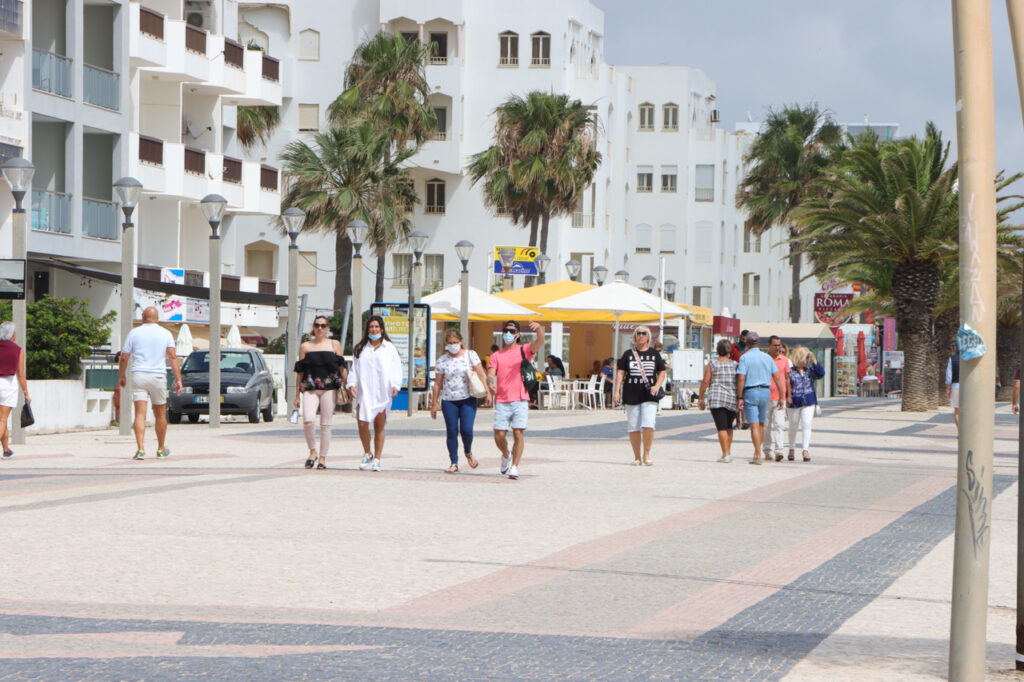The General Directorate of Health recommends the use of masks in population centers, events in outdoor spaces and in the school recess, said today, September 8, the general director, Graça Freitas.
“The indirect transmission of the virus is by accumulation of aerosols and obviously this route is much less effective outdoors than indoors. Anyway, the recommendation is that in clusters and in special contexts the mask should be used, said Graça Freitas in a hearing in parliament.
Graça Freitas pointed out, as an example in which the use of the mask is justified, recess in schools and also at events.
"Mobility itself in certain places in cities where there are population agglomerates, this could obviously constitute an exception, a different recommendation, because it allows direct and close contact between people and, therefore, allows the transmission" of the SARS-Cov-2 virus, that causes Covid-19 disease.
The director-general of Health also underlined that it is important “the social mobilization and the ethics of individual care for each one”.
“Each one of us must, despite everything, continue to wear a mask and, if necessary, put it on,” said Graça Freitas at the Occasional Committee for monitoring the implementation of response measures to the Covid disease pandemic. 19 and the economic and social recovery process, where she was heard at the request of the PSD on the mandatory use of masks.
He also stated that the DGS's guidance on the subject will be adapted and "one campaign, or several campaigns" will be carried out to explain the reasons, the objectives of the exceptions that must continue to be contemplated.
According to Graça Freitas, what will be taken into account is the «proportionality, adequacy and gradualism» of public health measures, with their adequacy to the moment, so that steps are taken and that they manage to monitor their impacts, allowing to «adapt the measures as effectively as possible to continue to control the pandemic”.
Accompanying Graça Freitas at the hearing were the director of the Department of Quality in Health at the DGS, Válter Fonseca, and the head of the Division of Epidemiology and Statistics at the DGS.
Right at the beginning of the hearing, Social Democrat deputy Sandra Pereira said that the PSD wanted to hear the DGS Epidemiology Group that intervenes in Infarmed meetings on the epidemiological situation of Covid-19 in the country and not the DGS, stating that «there will have been surely there is some noise in the communication here».
The PSD wanted to hear from the group of experts who attended the meetings that were held at Infarmed to «replicate here what the Government did not want to do regarding the end of the mandatory use of masks», declared Sandra Pereira
The deputy said that "the law that is in force ends on Sunday and the use of masks with general and universal mandatory force will end and the PSD would like to know, from a technical and scientific point of view, the effects that this could have and the precautions that the population must have».
In response, Graça Freitas stated that “the call was made” and it was in this sense that they presented themselves “with the civic duty of answering to the Assembly of the Republic”.
On the other hand, he said, the two DGS service departments present consult dozens of experts, entities and partners of the Ministry of Health, depending on the theme.
In the case of masks, he consulted the director of the Prevention and Control of Infections and Antimicrobial Resistance Program, Artur Paiva.
«When we produce technical opinions, we never do it alone, we do it using not only literature, but also specialists», stressed Graça Freitas.
He also said that the DGS and the Ricardo Jorge National Health Institute (INSA) have given "a lot of attention" to the issue of variants and their impact on the dynamics of the disease and the effectiveness of the vaccine and its effect on the Delta variant.
"In this case, the Directorate-General of Health with the Ricardo Jorge National Health Institute produce their own knowledge, they produce science, we are not limited to reading what is being done by other countries, we are doing our own evaluations", he stressed.
“Right now, we are able to provide information, analyze it and, based on that analysis, carry out risk assessments to try to adapt and adapt the measures”, concluded Graça Freitas.



















Comments